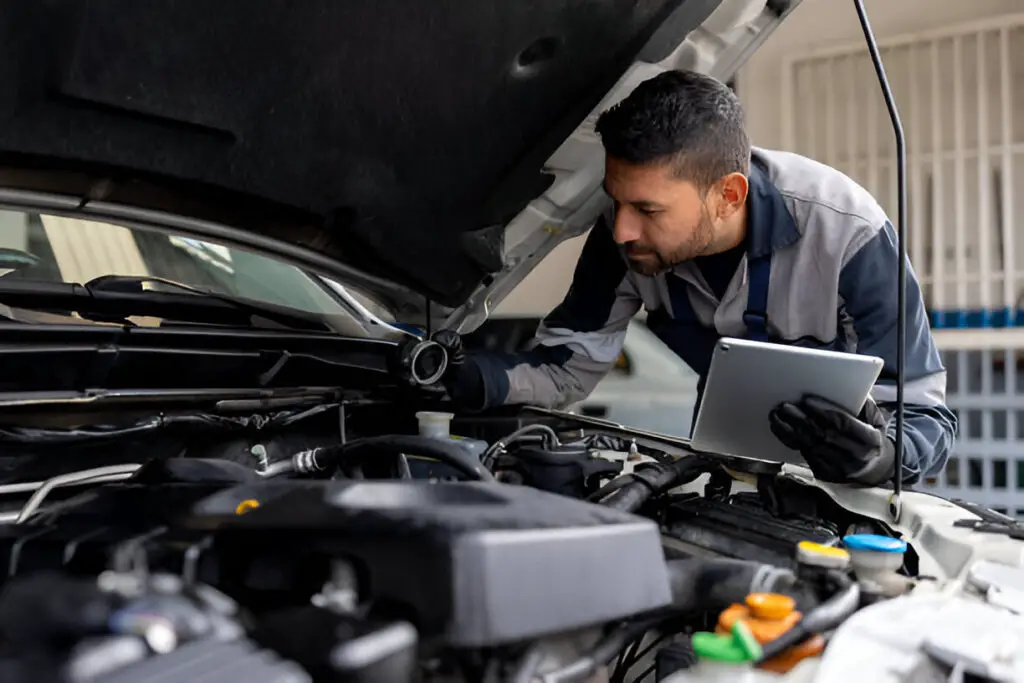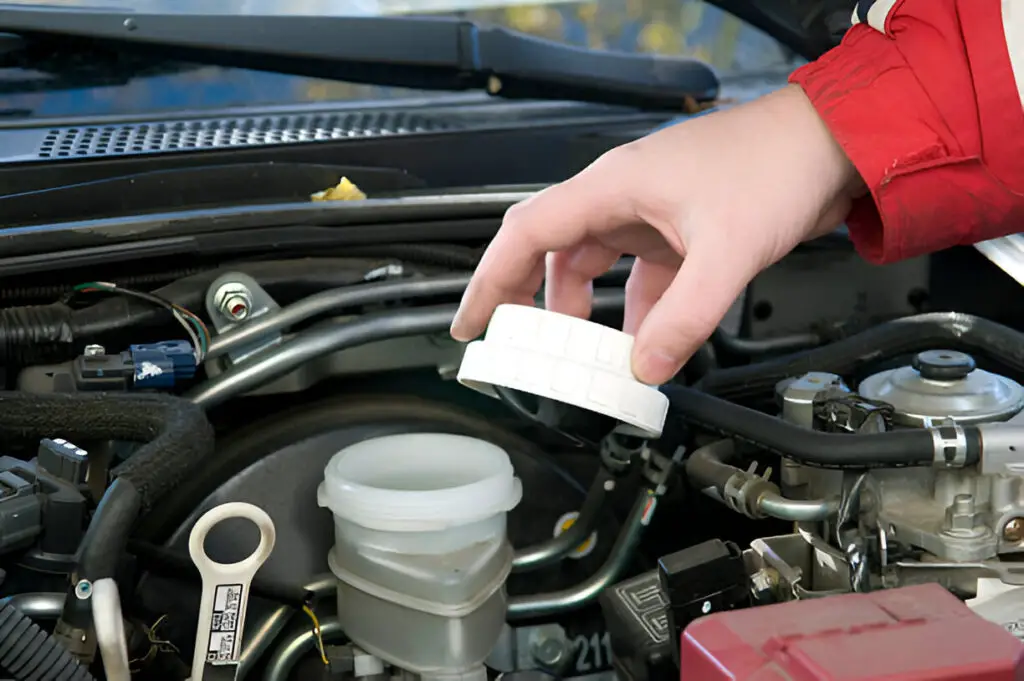Overfilled brake fluid can increase system pressure, damage components, and cause spillage, leading to corrosion. Always keep the level between the “MIN” and “MAX” marks to ensure safe and effective braking.
Brake fluid plays an essential role in a vehicle’s braking system. It ensures smooth and effective braking by transmitting the force from the brake pedal to the brake components. However, maintaining the correct level of brake fluid is crucial. Overfilling the brake fluid reservoir, while seemingly minor, can lead to several issues that compromise the car’s braking system and overall safety.
In this post, we’ll dive into the causes, potential consequences, and solutions for an overfilled brake fluid reservoir, along with answering some frequently asked questions on the topic.

Contents
What Happens When Brake Fluid Is Overfilled?
While underfilling brake fluid is widely recognized as problematic, overfilling can also lead to serious issues, including:
1. Increased Pressure in the System
Brake fluid needs space to expand when the brake components heat up during use. An overfilled reservoir leaves no room for this expansion, leading to excessive pressure buildup in the system. This can damage seals, calipers, or even the master cylinder.
2. Spillage and Corrosion Risks
Brake fluid is hygroscopic, meaning it absorbs moisture from the air. When brake fluid spills from an overfilled reservoir, it can damage surrounding components like paint, plastic, and rubber due to its corrosive properties.
3. Decreased Brake Performance
The excessive pressure from overfilling can inadvertently engage the brakes slightly, causing the brake pads to drag against the rotors. This results in overheating, faster brake wear, and reduced fuel efficiency.
4. Compromised Safety
Overfilled brake fluid can interfere with the proper operation of the braking system. In severe cases, it may cause the brakes to lock up or fail to release completely, increasing the risk of accidents.
What Causes Overfilled Brake Fluid?
Overfilling brake fluid often occurs during maintenance or as a result of misunderstandings about brake fluid levels. Common causes include:
- Topping Off Without Checking Levels: Some drivers top off the brake fluid unnecessarily without verifying if it’s actually low.
- Ignoring Manufacturer Guidelines: Using a fluid volume inconsistent with the vehicle’s manual can lead to overfilling.
- Fluid Return During Maintenance: After replacing brake pads or servicing calipers, the fluid level can rise as components return to their original position.

How to Address an Overfilled Brake Fluid Reservoir
Addressing an overfilled brake fluid reservoir is essential to prevent potential issues, such as brake system malfunction, spillage, or damage to other vehicle components. Here’s a step-by-step guide to handle this situation:
1. Check the Fluid Level
Regularly inspect the brake fluid level. If the level is above the “MAX” line, it’s overfilled.
2. Remove the Excess Fluid
To correct the issue:
- Use a turkey baster, syringe, or a specialized brake fluid extraction tool to remove the excess fluid.
- Ensure the fluid level is within the recommended range, between the “MIN” and “MAX” lines.
3. Dispose of Brake Fluid Properly
Brake fluid is toxic and should not be disposed of in household drains or the environment. Take it to a local recycling center or automotive shop equipped for hazardous waste disposal.
4. Inspect for Potential Damage
If the system has been overfilled for a prolonged period, check for leaks, damaged seals, or unusual brake behavior. If you suspect damage, consult a mechanic.
Preventive Measures
To avoid overfilling brake fluid in the future:
- Understand the System: Familiarize yourself with your car’s braking system and manufacturer recommendations.
- Monitor Wear and Tear: Brake fluid levels naturally drop as brake pads wear down. Check fluid levels only when necessary.
- Leave Maintenance to Professionals: If unsure, have your brake fluid inspected and serviced by a qualified mechanic.
Frequently Asked Questions
Here are some FAQs about brake fluid overfilling –
1. Can overfilled brake fluid cause brake failure?
Yes, overfilled brake fluid can lead to excessive pressure in the braking system, potentially causing the brakes to lock up or fail to release. This compromises safety and may result in brake failure.
2. Is it safe to drive with overfilled brake fluid?
Driving with overfilled brake fluid is not recommended. It increases the risk of brake system damage, spillage, and compromised braking performance. Address the issue promptly to ensure safe operation.
3. How much brake fluid should I add during maintenance?
Brake fluid should only be added if it’s below the “MIN” mark. Even then, add small amounts incrementally and check the level frequently to avoid overfilling.
4. What happens if brake fluid spills on my car’s paint?
Brake fluid can damage car paint by stripping away its protective layer. If a spill occurs, clean it immediately with soap and water, and rinse thoroughly.
5. Can overfilled brake fluid damage other car components?
Yes, brake fluid spillage can corrode nearby components like plastic, rubber, and metal parts, potentially leading to costly repairs.
Conclusion
Maintaining the correct brake fluid level is a simple yet crucial aspect of vehicle maintenance. While it may seem harmless, overfilling brake fluid can lead to significant safety and mechanical issues. By regularly inspecting the fluid level, following manufacturer guidelines, and addressing any problems promptly, you can ensure the braking system remains efficient and safe. When in doubt, consult a professional mechanic for expert assistance.
Remember, your brakes are your car’s most important safety feature—don’t let a seemingly minor oversight compromise your peace of mind on the road.